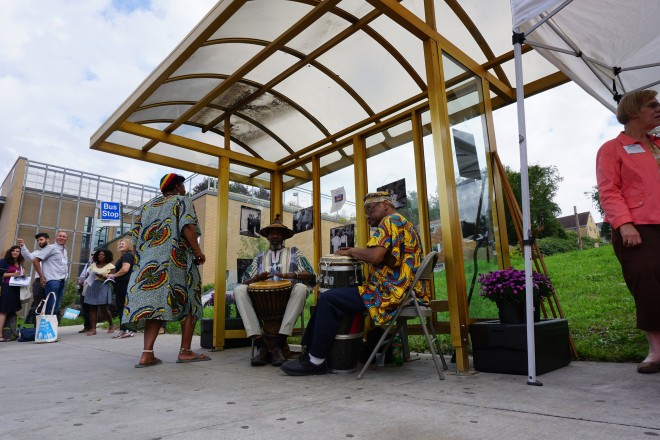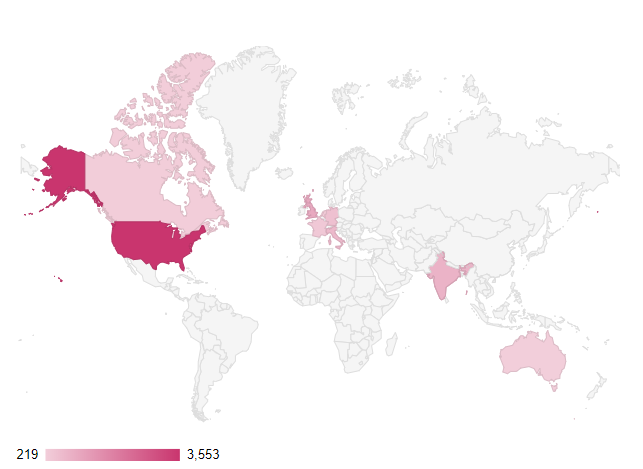Read time: 3-4 minutes
This post summarises the rich and diverse content shared on the YA blog during 2019. But first...
Happy 2020 to all readers and followers of the AESOP and YA communities!
May this new year and decade bring you success, peace, satisfaction and an always renewed sense of purpose and direction in all that you undertake.
New Year, New AESOP YA blog! As we start a brand new decade, your input can help maintain the AESOP YA blog as one of the best spatial planning blogs.
Take this 2 minute survey (https://www.surveymonkey.co.uk/r/67ZXHRF) if you haven't already done so. It's completely anonymous!
2019 was another rich year for the blog of the AESOP Young Academics, largely thanks to the hard work of its many editors, contributors and guest authors since its inception in 2014. 2019 saw over 12,000 views and 8,500 visitors for 13 published posts. This is slightly less than for 2018, which saw 13,000 views and 9,300 visitors for twice as many published posts.
The updated list of fully Open Access Journals generated 1000 views by itself. This provides evidence of a keen interest in sharing research in the most accessible way possible. As the list is meant to grow and be crowdsourced, feel free to get in touch to suggest relevant entries (e.g.

Damien Deville and Pierre Spielewoy advocate 'relational ecology' as a much-needed inclusive and experience-based approach to foster harmonious interdependencies between people and their environment. Relational ecology can "refresh our knowledge about the links between societies and their environment, and proposes to focus on territorial diversity in order to provide relevant responses to social and ecological crises."
Fabian Wenner and colleagues discuss the significant sustainability issues associated with international conferences, particularly: conference cost, travel mobility and travel-related environmental impact). They suggest that sustainability considerations should guide deliberation among organisers about both conference location and conference format. For example, they suggest "a rotating multi-venue format with centralised secondary venues [as] the most sustainable outcomes."
As AESOP held its Congress in Venice, a post by Rosa Salzberg investigates the 'AirBnB' phenomenon in Venice during the Renaissance when international merchants, entrepreneurs and migrant labour and refugees were flocking to Venice. Attempts to regulate the informal economy of converting permanent housing into temporary accommodation for international visitors was topical then as it is now, in Venice as in other world cities.
Manisha Sharma and Chandrima Mukhopadhay address the potential for improving safety at bus stations through place making. Focusing especially onIndian cities, they argue that surveillance and safety measures alone cannot compensate for appropriate, people-friendly design. Rather than constituting an additional cost, enhanced bus station design can raise both ridership, safety levels and user satisfaction simultaneously.

Pittsburgh bus stops as public space. Credit: Project for Public Spaces, https://www.pps.org/article/engaging-pittsburghs-bus-stops-bus-stops-as-public-spaces
On the topic of food, I shared some modest reflections about an enlightening lecture by Carolyn Steel on her upcoming book Sitopia. She reminds the planning community that food and cities have shaped each other since Ancient Times, and that the future of sustainable food and cities is similarly inseparable. Instead of some remote utopian ideal, Carolyn Steel advocates a place-based approach to food and a careful integration of food systems in urban planning.
The AESOP community witnessed the tragic loss of a dedicated member. Sandra Annunziata, an international researcher who graduated in architecture at IUAV in Venice in 2004, engaged in outstanding collaborative work on the topic of gentrification. Marco Cremashi and colleagues pay sincere homage to her industrious work and to the light she shone, which will shine on in all those who knew her.

Sandra Annunziata, in memoriam
The other posts published in 2019 constitute diverse and useful resources for young (and senior) academics and practitioners.
Chrissi Nerantzi shares her invaluable experience of using Lego(R) for the VIVA / PhD Defense, which can also be useful for group work and communication.
Consultant Les Robinson shares a career's worth of best practice tips for effective community engagement, and suggests a compelling curiosity-meter to help facilitators engage with citizens/users. The model serves as a basis to enable effective listening of user needs, ensures that participants have fun, helps to select appropriate engagement methods.
A list of relevant international conferences was also provided, which will be upgraded and turned into a permanent resource on the YA blog (stay put and share your favourite conferences with:
Finally, I provided some must-read insight about impactful blogging inspired from blog experts (both academics and digital marketers) to help you build and communicate your 'brand' and work to the wider community.

Interestingly, the majority of visitors in 2019 were located in North America. The map also shows visitors from Western Europe, India, and Australia. In 2020, efforts can be made to engage more academics and practitioners in Central and Eastern Europe, the middle East, Latin America, Africa, and other parts of Asia.
The YA blog: 2014-2020+
A retrospective of the blog since its launch in 2014 (under the luminary auspices of Simone Tulumello and the YA Coordination Team) will follow in the coming weeks. The post will also share the results of the short online survey to help improve the YA blog.
In the meantime, send your contributions as short (500-1500 words) posts to:
Happy blogging, and keep on sharing!